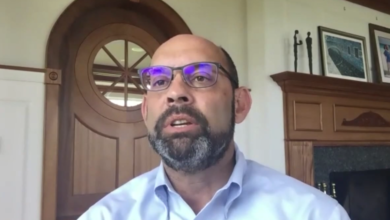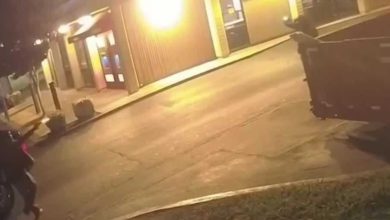
If you don't know whether you need a COVID-19 vaccine booster shot, don't worry. You don't – at least not now. And the vaccine experts don't know yet whether you ever will.
But the team at the Gamble Vaccine Research Center at Cincinnati Children's Hospital Medical Center is among those working to find out. The center began testing on a Pfizer COVID-19 booster shot this week.
Booster shots, as their name suggests, are used to boost the antibodies in the blood created by previous vaccines in a person. Because, over time, the antibodies decrease.
But Dr. Robert Frenck, chief investigator for the trial and director of the vaccine research center, stressed that the best way to prevent COVID-19 infection is still by getting vaccinated.
"We don't need boosters at this point," Frenck said. "We would get much more impact by vaccinating those who haven't been vaccinated than to give others a third dose."
He explained the booster trial this way: "We are testing the Pfizer vaccine to see how strong a boost it provides to people who already have had two doses of vaccine. If there is a strong boost, we know it is something that could be done, if needed. If there is no boost, we know giving additional doses of vaccine won’t be helpful."
Another part of the researchers' work will be to check participants' antibody levels over time and monitor them to see whether they get COVID-19 as antibody levels decrease.
It's why participants for the booster trial are among those who were in original Pfizer COVID-19 vaccine trials. They are being monitored for two years.
"If we see a lot of people getting infected, we then look at the antibody level of those people and can get a good idea of the amount of (minimum) antibody needed to be protected," Frenck explained.
Frenck has been watching COVID-19 death and hospitalizations closely since masking and distancing requirements in many states were lifted.
"I was worried we were going to have a surge in cases," he said. "Unfortunately, that's true."
New COVID-19 cases jumped in Ohio in the week ending Sunday, rising 43.7% as 2,842 cases were reported.

The people getting sick with COVID-19 or its variants were not vaccinated against COVID-19, said Frenck, an infectious disease specialist who has been at the forefront of the COVID-19 vaccine trials since the pandemic hit. The vaccines remain highly effective protection from the virus, he said.
The booster trial is important, too, he said, but it is not as immediately urgent as getting vaccinated.
Up to 200 people 16 and older who were in a previous Pfizer vaccine trial will take part in the current trial, Frenck said. About 10,000 people across the country will participate in the trials.
"We have bloodwork for them. We know the antibody level of each dose (from) when they got the vaccine," he explained. The vaccine formulation is the same as the original.
With the booster trial, Frenck said, "we're trying to get ahead of the game." That's different from when the vaccines were developed – which was a reactive approach to try to catch up with the pandemic.
As of Tuesday, the Ohio Department of Health's COVID-19 vaccine dashboard showed almost 51% of Hamilton County residents had started COVID-19 vaccination. Clermont and Butler counties vaccination-start rate was just over 46%, and Warren County was at almost 53%.
The vaccines have been highly effective at keeping people safe from the original COVID-19 virus and other variants, Frenck said, but the region's rates are not high enough yet.
"I don't want to see one more person hospitalized with COVID," Frenck said. "I don't want to see one more person die from COVID."
Source link









